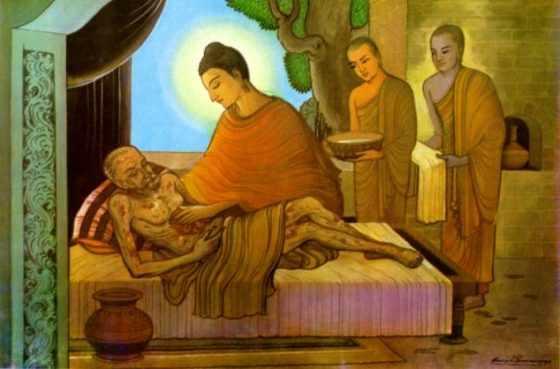The wings of hope carry us

With wonderful feathers
Sits on the boughs of the soul
And sings the song of how to be remain alive
It sings when the dream breaks
It sings when overturn the ships
You are at the bottom and
Far away is the beach
At that time it teaches you
How to ride from bottom to top
How to swim to reach to the beach
How to rebuild the broken wings of your dream
Then you get an energy inform of a wind in the tune
To be alive strongly better than before
And it will continue to sing till you want to listen.
Poem title: Hope
~Written by Abdul Wahab
This post has been reshared 37 times on Google+
View this post on Google+





 The Buddha told us that “Life is Suffering”. One who does not understand the Truth of this may think that life is meaningless and become negative and pessimistic. Actually, this theory is commonly misunderstood. People in society and even some Buddhists are trapped in this wrong and gloomy view.
The Buddha told us that “Life is Suffering”. One who does not understand the Truth of this may think that life is meaningless and become negative and pessimistic. Actually, this theory is commonly misunderstood. People in society and even some Buddhists are trapped in this wrong and gloomy view.










